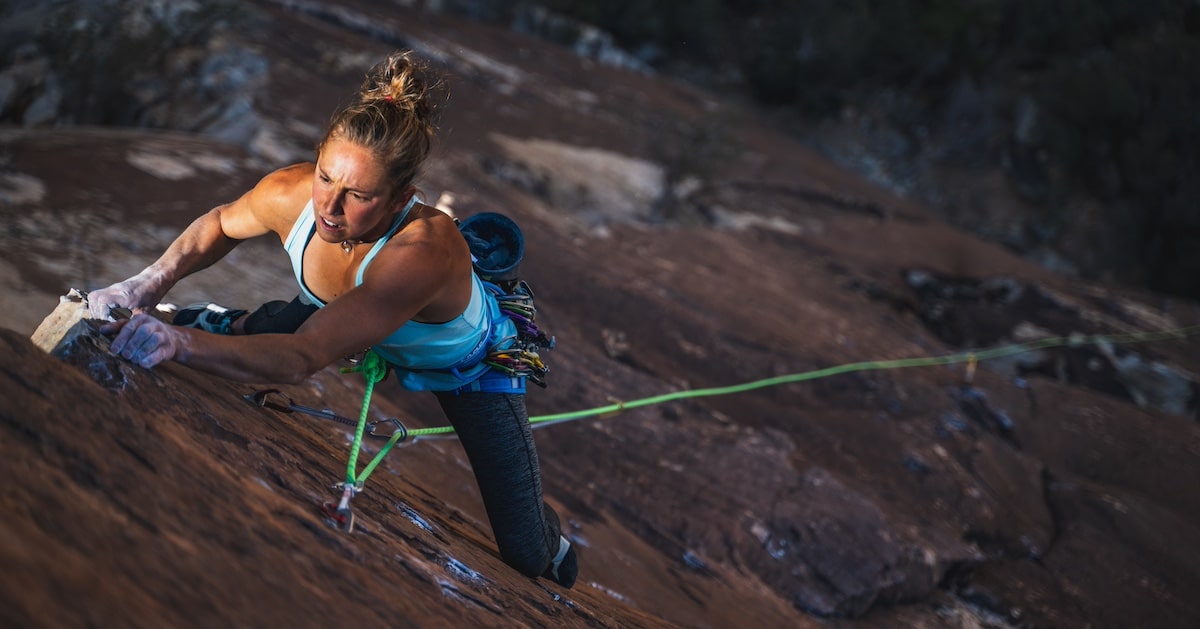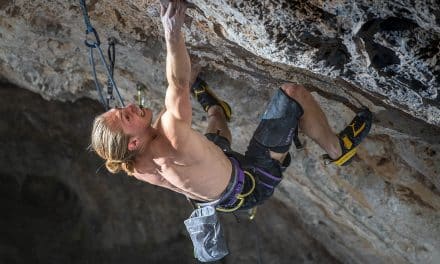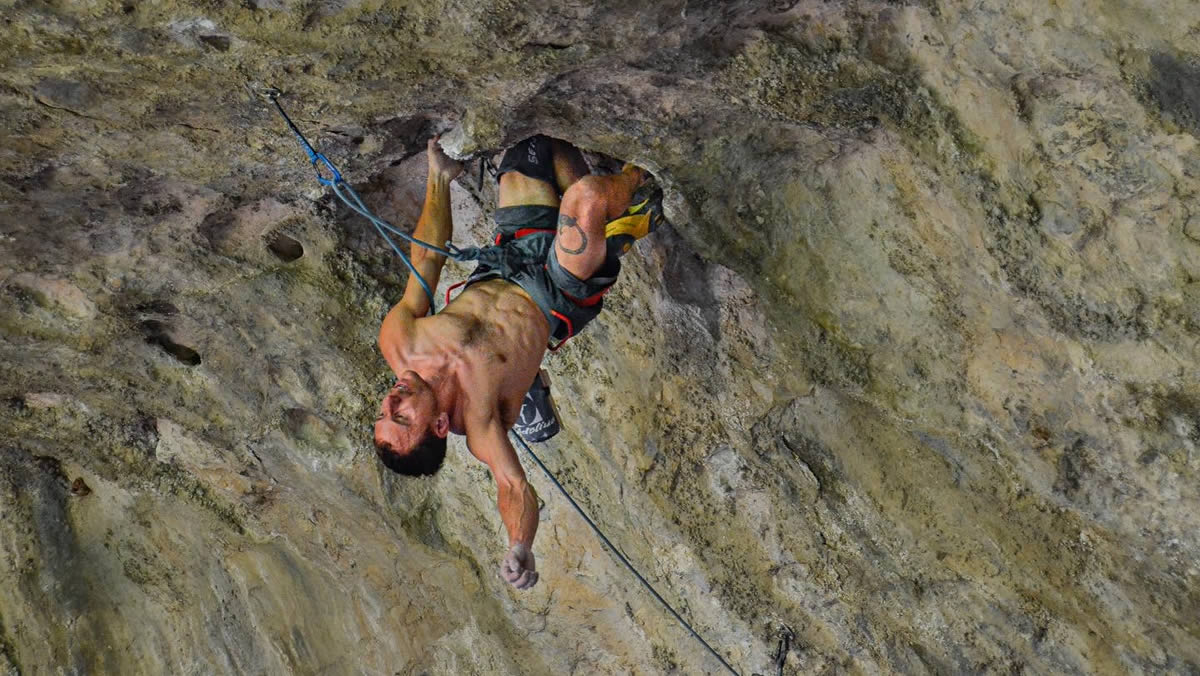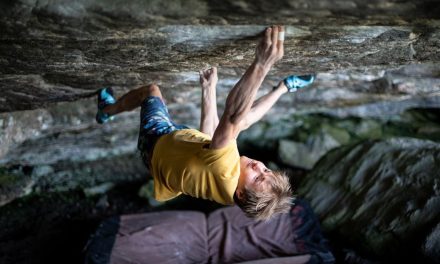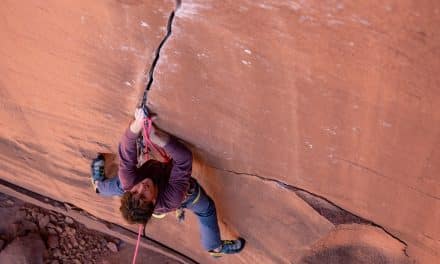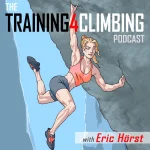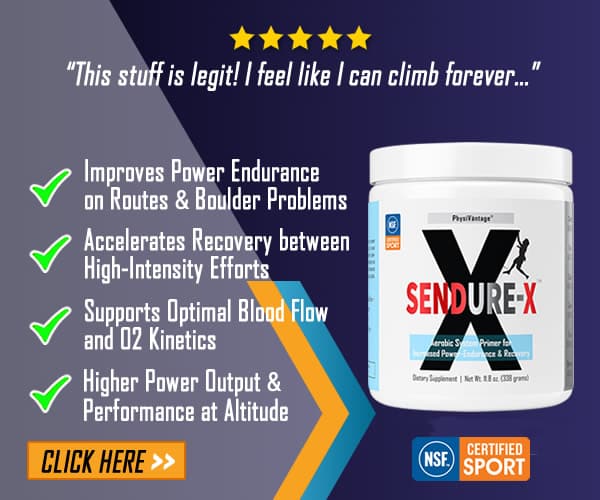In climbing, you get out what you put in. That applies not only to what you do in the gym, but also the choices you make in the kitchen. Learn about nutrition for climbers from Registered Dietitian Amity Warme to provide your body with enough energy for working hard, sending hard, and loving climbing for life.

Amity Warme free climbing Golden Gate (5.13b), El Capitan, Yosemite.
Nutrition is one of the most crucial yet controversial aspects of an athlete’s performance. Food fuels our bodies through training, recovery, projecting, and—on occasion—sending. Without proper nutrition, we can’t perform at our best, whether in the gym, on the rock, or in daily life.
However, the line between healthy eating and underfueling can be a fine one. So how can climbers ensure they stay on the right side of it? Sports dietitian and professional climber Amity Warme breaks it down. Here are key takeaways from her conversation with Ryan Delvin on The Struggle Climbing Show to help you develop a healthier relationship with food.
How much does weight really matter?
Not as much as you’d think. Manipulating the strength-to-weight ratio by dropping weight does work…for a while. Climbers like Melina Costanza have expressed how it feels to be “sprinting toward a cliff” when restricting intake for the sake of losing weight. Gravity is real, and having less weight to move around can certainly have a temporarily positive impact on your climbing. But the upward trend only lasts so long. Climbers will eventually begin to lose power and strength, which comes back around to negate any changes to strength-to-weight ratio.
Other factors—such as training adaptations, skill development, goal-setting, recovery habits, mental health, and relationships—play just as significant, if not greater, roles in climbing performance. Shifting the focus from weight goals to performance goals is a more sustainable approach.
Is there such a thing as healthy weight loss for climbing?
Yes, but it’s complex. There’s a difference between a short-term, goal-oriented dietary adjustment and a prolonged calorie deficit. The human body craves stability, and remaining in a significant deficit for too long can lead to energy depletion and negative health effects (RED-S).
A modest, short-term cut could very well be a different story. Some climbers, like Matt Fultz, strategically cycle through slightly heavier and lighter body weights. The key word here is slightly. Trimming a small amount of weight—a mere percentage or two—helps him enter a performance phase. But that’s only after putting in all of the other work required to be at his best.
Should climbers track their nutrition intake?
It depends on the individual. Some find tracking intake or macronutrients helpful in understanding their needs, while for others, it can trigger disordered eating habits. Moreover, numbers don’t tell the full story, as Amity reminds us. Nutrition isn’t an exact science—it’s about how you feel.
Warning signs of underfueling, such as fatigue, irritability, frequent injury, illness, or slow recovery, provide better insight than calorie counts. Adjusting nutrition based on training phases and activity levels can help climbers maintain peak performance.
Does meal timing matter?
Food is important for all activity in life, but especially for the hard stuff. Good nutritional habits include:
- Eating a meal or snack before training for sustained energy.
- Bringing a carb-rich snack for sessions longer than an hour to maintain performance.
- Refueling within 30 minutes post-session with a combination of carbs and protein for optimal recovery.
What are the most effective nutritional supplements for climbers?
Protein powder can be a simple way to make sure you’re getting enough of this macronutrient in your diet. Highly active athletes should aim for 0.75-1.0 grams of protein per pound of bodyweight spread throughout the day. Caffeine can provide a helpful energy boost, especially when used as an intentional supplement rather than an everyday habit. That doesn’t mean you have to kick your morning coffee habit…but tapering down in the days before a big effort when you could really use an extra-strong hit of energy will make caffeine more effective. Collagen, when paired with an exercise stimulus, can build more robust tendons and ligaments. Collagen on its own is like sending a letter without an address; exercise gives it a place to go. It doesn’t take much to do the trick. Even 10-15 minute hangs that engage your tissues is enough to direct the collagen to the right places in your body.
For more where all this came from, listen to the whole conversation with Amity Warme on The Struggle Climbing Show!
Related Articles:
- How Matt Fultz Trains from Home for V16 Climbs
- How Elite Boulderer Andi Stull Translates Her Training to Sport Climbing
- How Jonathan Siegrist Trains to Crush 5.15 Climbs
- 15 Bouldering Tips from the Pros
Copyright © 2000–2025 Lucie Hanes & Eric J. Hörst | All Rights Reserved.

